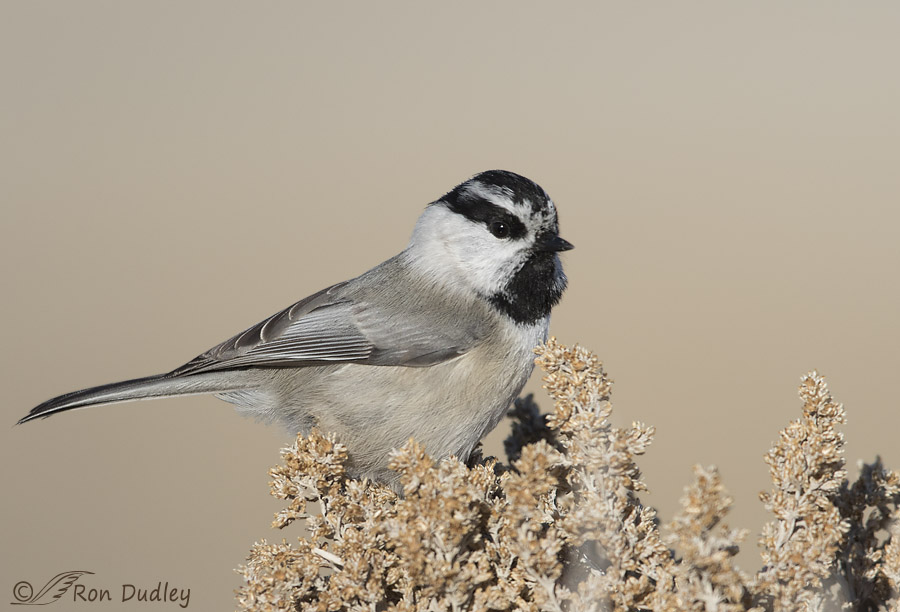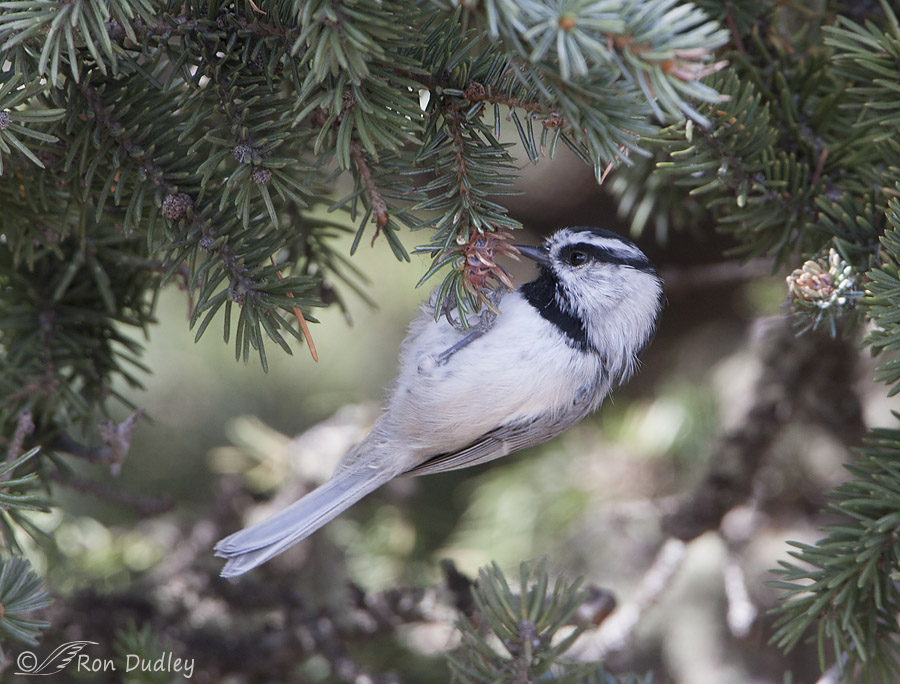I was photographing sparrows on Antelope Island six days ago when this little cutie popped up right in front of me.

1/2500, f/6.3, ISO 500, Canon 7D Mark II, Canon EF500mm f/4L IS II USM +1.4 tc, not baited, set up or called in
And what a pleasant surprise it was. I’ve spent several thousand hours on the island over the years and this was the first Mountain Chickadee I’d ever seen there. The bird only gave me time for a few quick shots and I was so excited that I didn’t think to increase my depth of field to get all of the perch as sharp as possible but if I’d have fiddled with my settings I might have missed getting images of the chickadee altogether. In many of my other shots the birds face was turned more toward me and its dark bill simply disappeared into that black bib.
The Mountain Chickadee is visually very similar to the more familiar Black-capped Chickadee except for its white eyebrow stripe, thinner and shorter bill and the lack of white on its wings.

1/100, f/8, ISO 500, Canon 40D, Canon EF500mm f/4L IS USM +1.4 tc, not baited, set up or called in
This is an older image of a Mountain Chickadee as it demonstrates “hang-gleaning”, a food gathering technique that the species is well-known for. They often hang upside down from conifer branches as they search for tiny insects, or alternately hang from cones in search of seeds in the fall. I think it’s an endearing behavior to watch.
The North American Breeding Bird Survey reports that the numbers of these saucy little birds have declined in excess of 1% each year since 1966, with a cumulative loss of 39%. Yet another bird species in trouble.
Ron
Note: Some of you have been having problems accessing this post or commenting on it. Hopefully that issue has now been addressed. Very sorry for the inconvenience.


Wonderful shots Ron!
These both look like holiday greeting cards waiting to happen. I am particularly fond of the top one.
Just wonderful shots Ron!
Charlotte
Jeeez, Ron! Of course, AT LEAST 3 out of four describe you…who do you think I was talking about….HUh? Huh? Huh? DUH!!!!
Cute, sassy, curious, reasonably “tame” and unafraid,,,,will eat out of your hand and ride the feeder when you take it down to fill it, or rehang it! I LOVE them!!! Looks like your western variety has as much “attitude” as our eastern ones do. Great!
“Cute, sassy, curious, reasonably “tame”
Three out of four of those descriptors are perfect for ME, Patty… Thank you.
endearing is the perfect descriptions for both of these adorable images, Ron!!
Thanks very much, Lois.
Excellent shots Ron. Very nice job!
Do you ever wonder what the landscape, birdwize, will be like in 30-50 years.
That whole thought process could get me on another platform, not going there.
“Do you ever wonder what the landscape, birdwize, will be like in 30-50 years.”
I sure do, Dick. Makes me wonder what birds will be around for my grandson and others to enjoy. It’s a depressing thought…
Hi Ron. I have never seen a mountain chickadee but I have many Black Capped Chickadees that visit my yard every day.. They arrive in October and depart in March. I love these little birds. They are such happy and playful little birds. When it snows, they enjoy playing and jumping in it. I can’t say I have seen a decrease in their number here, but I would really hate to see these little guys disappear.
Debbie, I’m unaware of any reported significant decline in Black-capped Chickadee numbers so hopefully that species is doing well. It’s another story for the Mountain Chickadee though.
I love them – and am so sorry that like so many species (other than our overcrowded own) they are in trouble. Hiss and spit.
Thank you, Elephant’s Child.